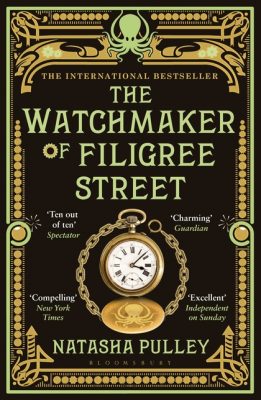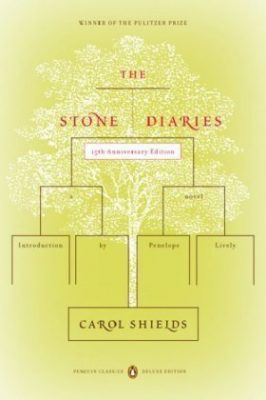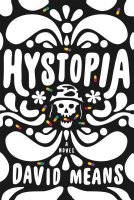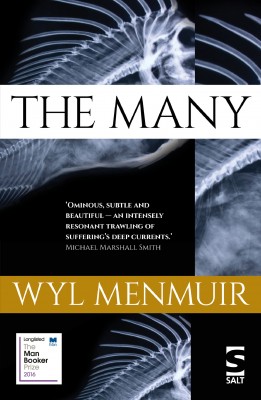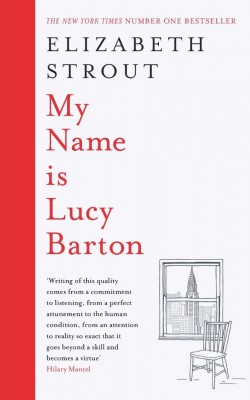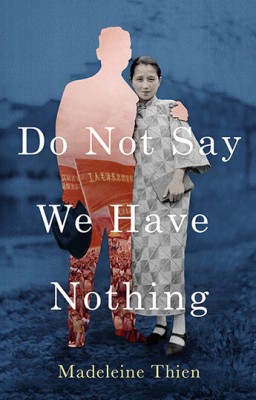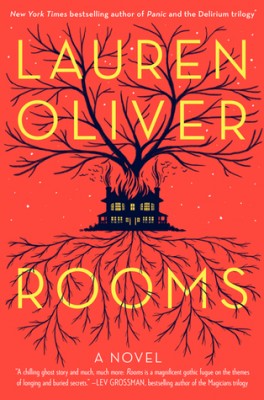Brace yourself: this is a novel set partially in Whitechapel in the 1880s that does not so much as glance at Jack the Ripper. I know, right? What even are the 1880s in Whitechapel for? Well, in this case, a young man working as a clerk for the Home Office is saved from a bomb set by Irish Republicans by a watch made by a clairvoyant Japanese watchmaker, so…sorry you asked?
Continue reading The Watchmaker of Filigree Street
The autobiography of a fictional character, this novel charts the significant periods in the life of one Daisy Goodwill, born in 1905 in rural Manitoba. The novel dedicates one chapter apiece to birth, childhood, marriage, motherhood, etc, right up to (and including) death, which you have to admit is an unorthodox choice for a novel purportedly narrated by the protagonist (though often not in the first person).
Continue reading The Stone Diaries
The heroine of this novel, Sofia, travels with her mother Rose to a coastal Spanish town in order to consult an orthopaedic surgeon about the pain (or is it numbness?) that has resulted in the mother being mostly unable to walk for many years. The father is long since out of the picture, having moved back to his native Greece, married a woman the age of his own daughter, and started a new family. The relationship between mother and daughter is strained, to the point of abusiveness. It seems that, her mother having been under a disability for most of her life, Sofia has been forced to care for Rose in her father’s absence since childhood, and Rose has done everything she can to make it as difficult as possible.
Continue reading Hot Milk
In an alternative version of American history, JFK is in his third term as President, Michigan is basically one huge fiery riot, and the government is subjecting soldiers returning from Vietnam to experimental psychological treatment. Reenactments of their traumas are resulting in a loss of memory of any of the traumatic events; for some, who went to war with childhood friends, this includes large gaps in their memories over the course of a lifetime. Meanwhile, one failed experiment, known as Rake, has embarked on a killing spree, dragging along a psychologically damaged young woman, Meg, whose boyfriend was killed in Vietnam.
Continue reading Hystopia
In a small coastal village somewhere in Britain, a stranger arrives, moving into a cottage left vacant by the death of a fisherman years earlier. Meanwhile, the village’s diminishing fishing fleet is confined to the coastal waters by a silent barricade of tankers in the distance, and what catch it manages to return appears mysteriously diseased. Told from the alternative points of view of the stranger, Timothy, and a fisherman, Ethan, we gradually learn about the events that have brought the characters to this point.
Continue reading The Many
It is 1964, and Eileen lives alone with her verbally abusive alcoholic father in a small town in Massachusetts. Underfed, embittered, and lonely, she has never felt loved or appreciated by anyone, until the arrival of a new colleague, Rebecca, at the (literal) prison where she works. From a vantage point some years in the future, she narrates what she tells us is the last week she spent living the identity with which she was born.
Continue reading Eileen
Guys. You guys. This book.
I don’t even know what to say about it. I read it on my Kindle, which lets me highlight sections; usually I use this feature to highlight things I think are significant, that I can come back to at the end to help me understand the book as a whole. At a certain point while reading this book, I realised I was highlighting on just about every second page. Every sentence, almost, seems weighed down with significance. Yet somehow, the touch of the author is so light, feather-light, so fragile, that it seemed the book might come apart if I breathed wrong.
Continue reading My Name is Lucy Barton
“Why did Busoni transcribe Bach? How does a copy become more than a copy? Is art the creation of something new and original, or simply the continuous enlargement, or the distillation, of an observation that came before?”
So ponders the narrator, Marie, near the end of this long, but never slow, novel. As a child living in Canada, her beloved father, Chinese by birth, committed suicide in Hong Kong in 1989. Not long after, her mother received a letter from the wife of her father’s best friend in China, begging Marie’s mother’s help to smuggle her teenage daughter to Canada. Although the child Marie does not understand the reasons for these events, it is implied that the daughter, Ai-Ming, has been involved somehow in the Tiananmen Square protests. After her arrival Ai-Ming discovers a notebook in Marie’s home filled with elegant Chinese calligraphy, and begins to tell the story of the Book of Records.
Continue reading Do Not Say We Have Nothing
There’s a kind of suspension of time that happens when you crack open a new book by a favourite author. Will she live up to the promise of those previous books you loved? Has she lost her touch? Are you about to suffer a crashing disappointment?
Moss’s main interests, judging by her previous works, are the role of women in society and the ways in which families function (and fail to function). In this novel, the main character is, for a change, a man – a stay-at-home dad with a GP wife and two school-age daughters. As the book opens, his seemingly stable world is about to be nudged off its axis by a phone call informing him that his elder daughter, Miriam, has stopped breathing at school.
Continue reading The Tidal Zone
In upstate New York, the imprints of two deceased souls have lingered in the house they both occupied, and have become infused into its walls, floors, ceilings, and structure. Unable to look away or stop listening, they witness the final illness of the house’s subsequent owner and, after his death, the arrival of his estranged wife and children, who come to clear out his possessions but who set in motion a chain of events that sees the house’s secrets come spilling out one at a time.
Continue reading Rooms
